
Cape Maclear: The Jewel of Lake Malawi
Cape Maclear, also known as Chembe, is a charming fishing village nestled on the southern tip of Lake Malawi. This idyllic destination is renowned for its crystal-clear waters, stunning sunsets, and vibrant marine life, making it a paradise for nature lovers and adventure seekers alike. The area is part of Lake Malawi National Park, a UNESCO World Heritage site, which ensures the preservation of its rich biodiversity. Visitors can explore the underwater world through snorkeling or diving, encountering colorful cichlid fish that are unique to the lake. For those who prefer to stay above water, kayaking or taking a boat trip to nearby islands offers a peaceful way to enjoy the scenic surroundings. Cape Maclear is also a cultural haven, offering a glimpse into Malawian village life. Tourists can visit local markets, interact with friendly villagers, and even participate in traditional dance and music events. The laid-back atmosphere and welcoming community make it easy to relax and soak in the beauty of this hidden gem.
Local tips in Cape Maclear
- Visit during the dry season (May to October) for the best weather and water clarity.
- Bring cash, as there are limited ATMs and card facilities in the village.
- Hire a local guide for snorkeling and diving trips to get the most out of your underwater experience.
- Respect local customs and traditions; dress modestly when outside beach areas.
- Don't miss the sunset views from the beach, they are spectacular.
Cape Maclear: The Jewel of Lake Malawi
Cape Maclear, also known as Chembe, is a charming fishing village nestled on the southern tip of Lake Malawi. This idyllic destination is renowned for its crystal-clear waters, stunning sunsets, and vibrant marine life, making it a paradise for nature lovers and adventure seekers alike. The area is part of Lake Malawi National Park, a UNESCO World Heritage site, which ensures the preservation of its rich biodiversity. Visitors can explore the underwater world through snorkeling or diving, encountering colorful cichlid fish that are unique to the lake. For those who prefer to stay above water, kayaking or taking a boat trip to nearby islands offers a peaceful way to enjoy the scenic surroundings. Cape Maclear is also a cultural haven, offering a glimpse into Malawian village life. Tourists can visit local markets, interact with friendly villagers, and even participate in traditional dance and music events. The laid-back atmosphere and welcoming community make it easy to relax and soak in the beauty of this hidden gem.
When is the best time to go to Cape Maclear?
Iconic landmarks you can’t miss
Lake Malawi National Park
Explore Lake Malawi National Park, a UNESCO World Heritage site with stunning landscapes, rich biodiversity, and vibrant aquatic life waiting for you.
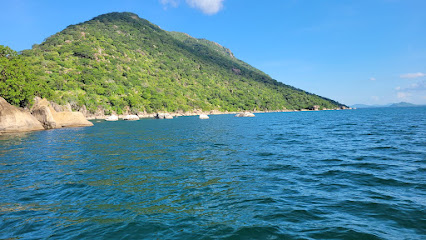
Blue Zebra Island Lodge
Discover serenity and natural beauty at Blue Zebra Island Lodge, your peaceful escape on Nankoma Island in Senga Bay, Malawi.

Fat Monkeys Lodge
Experience the warmth of Malawian hospitality at Fat Monkeys Lodge, your perfect base for exploring the breathtaking landscapes of Chembe.

Thumbi View Lodge
Experience the tranquility of Lake Malawi at Thumbi View Lodge, where nature meets comfort in the heart of Cape Maclear.
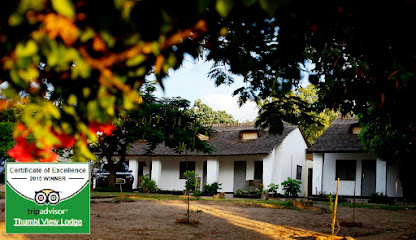
Mgoza Lodge
Discover tranquility at Mgoza Lodge, where stunning lake views and captivating sunsets create the ultimate escape in Cape Maclear, Malawi.

Mufasa Eco Lodge
Discover the beauty of Lake Malawi at Mufasa Eco Lodge, where nature meets comfort in a serene and friendly atmosphere.
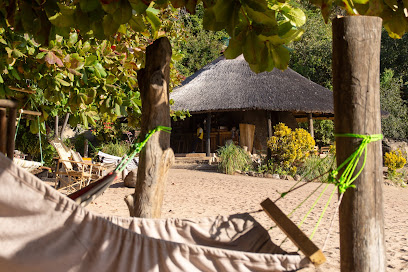
Safari Beach Lodge
Discover the serene beauty of Safari Beach Lodge, where luxury meets nature on the shores of Lake Malawi.
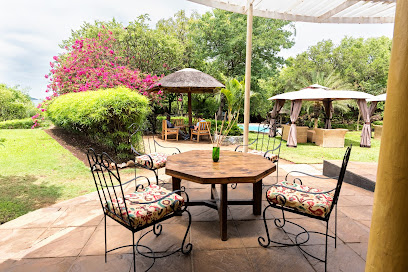
Chembe Eagles Nest Resort
Discover the serene beauty and vibrant activities at Chembe Eagles Nest Resort, your perfect retreat on the shores of Lake Malawi.

Tranquilo Resorts Limited - Cape Maclear
Experience the serene beauty of Lake Malawi at Tranquilo Resorts Limited, a perfect blend of relaxation and adventure in Cape Maclear.

Warm Heart Adventure Lodge
Discover the beauty of Lake Malawi at Warm Heart Adventure Lodge, where relaxation meets adventure in a stunning lakeside setting.
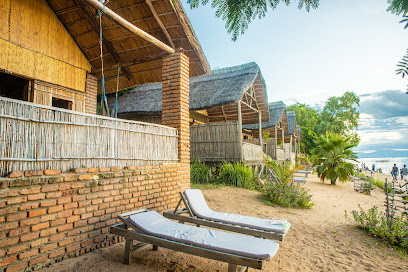
ZATHU Cape Community Kitchen & Bar
Experience the essence of Malawi at ZATHU Cape Community Kitchen & Bar, where local flavors meet warm hospitality in the heart of Cape Maclear.
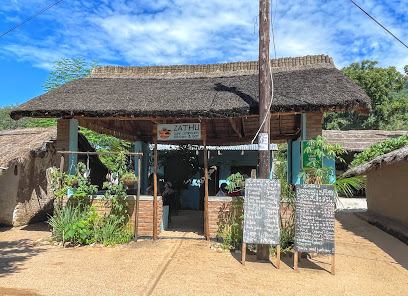
Silver Sands Holiday Resort
Experience the serene beauty of Silver Sands Holiday Resort, a public beach paradise near the Malary Islands in Maganaa, perfect for relaxation and adventure.
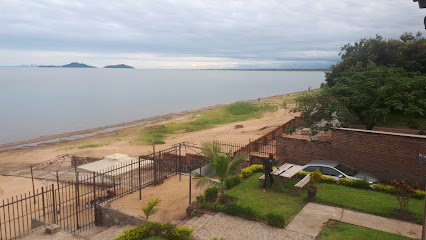
Kayak Africa
Discover tranquility at Kayak Africa, your ideal retreat on Lake Malawi, featuring stunning views, cozy accommodations, and exciting water activities.

Mumbo Island
Discover the pristine beauty and ecological wonders of Mumbo Island, a serene lodge and children's camp in the heart of Lake Malawi's breathtaking landscapes.
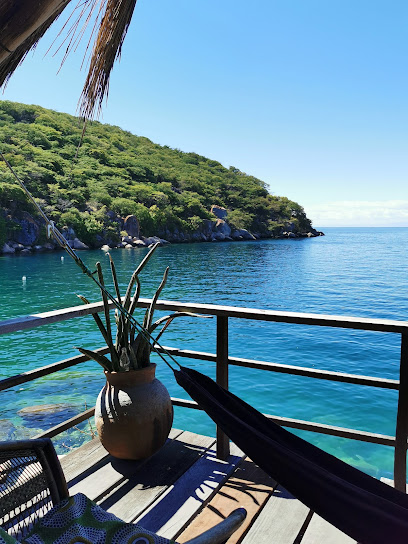
Kumbali Lake Retreat
Experience the tranquility and beauty of Lake Malawi at Kumbali Lake Retreat, where comfort meets nature for an unforgettable getaway.

Unmissable attractions to see
Otter Point
Experience the breathtaking beauty of Otter Point, a natural wonder showcasing stunning coastal views and rich wildlife in a serene outdoor setting.
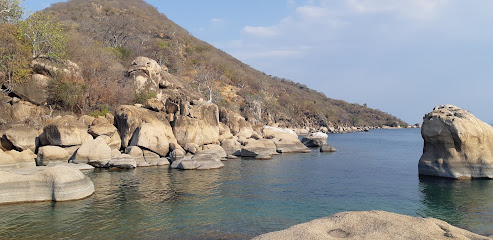
Mumbo Island
Experience the serene beauty of Mumbo Island, a family-friendly eco-lodge in Lake Malawi offering stunning landscapes and vibrant wildlife.
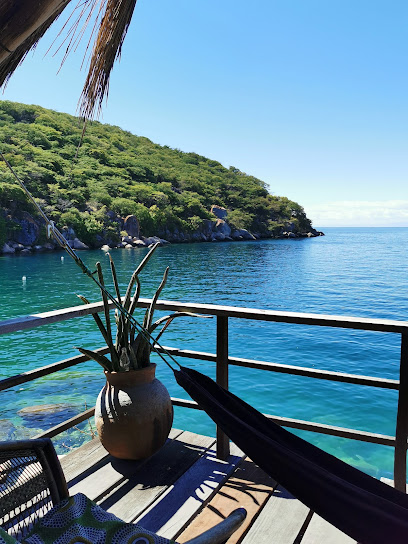
Kuti Wildlife Reserve Main Gate
Explore Kuti Wildlife Reserve Main Gate, Malawi's premier wildlife refuge offering breathtaking landscapes and unforgettable animal encounters.
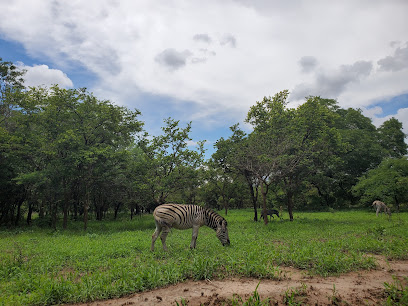
Mwala wa Mphini
Experience the breathtaking beauty of Mwala wa Mphini, a serene natural attraction in Masaka, Malawi, perfect for nature lovers and adventure seekers.
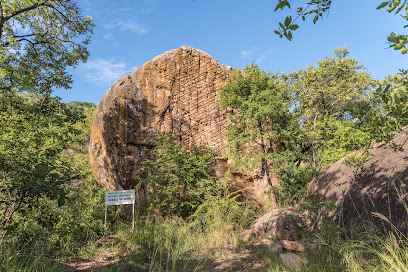
Thumbi view point
Discover the breathtaking beauty of Thumbi View Point, Malawi's scenic treasure with stunning views of Lake Malawi and unforgettable sunsets.
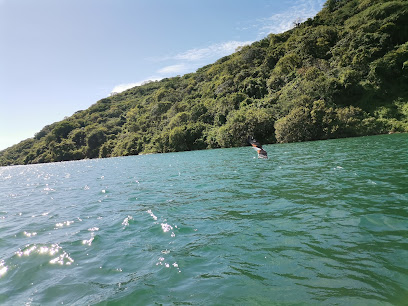
Chembe View
Discover the mesmerizing beauty of Chembe View, a lakeside paradise offering breathtaking vistas and a glimpse into vibrant Malawian culture.
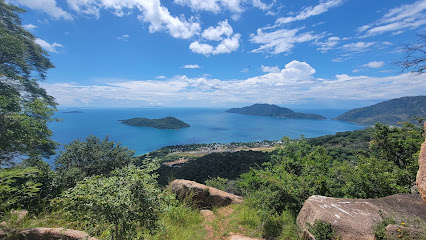
Tsano Rock
Experience the stunning beauty and cultural significance of Tsano Rock, a hidden gem along the shores of Lake Malawi, perfect for exploration and relaxation.
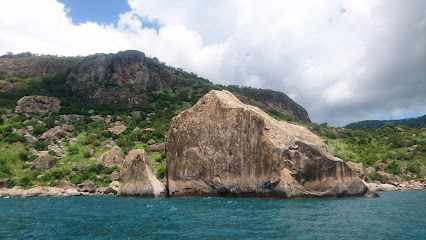
Missionary Graves
Explore the Missionary Graves in Chembe, a serene historical site that showcases the legacy of dedication and faith in a beautiful natural setting.
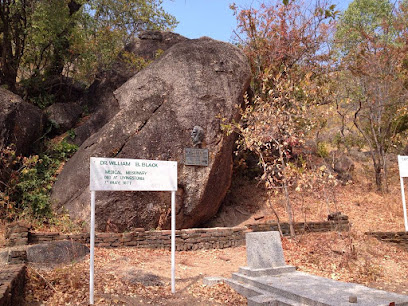
Asili Garden
Explore the lush beauty and tranquility of Asili Garden, a serene retreat showcasing vibrant flora and immersive nature experiences.

Lake Malawi outlet view
Experience the stunning vistas of Lake Malawi's outlet - a serene escape perfect for relaxation, photography, and cultural immersion.
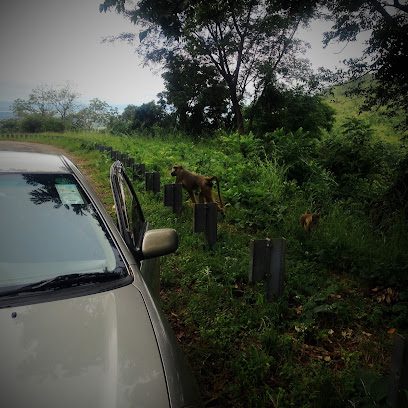
Bwanje Valley Dam, Mua
Explore the serene Bwanje Valley Dam in Malawi, a stunning natural attraction perfect for relaxation, picnics, and outdoor adventures amidst breathtaking landscapes.
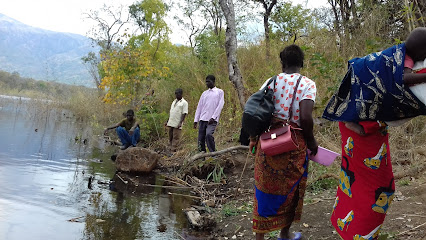
Mount Nkhunguni peak trail
Experience breathtaking views and rich biodiversity on the Mount Nkhunguni Peak Trail, a must-visit hiking destination in Chembe, Malawi.
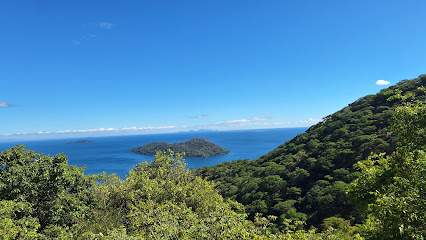
Mkumba' Dande
Discover the breathtaking hiking trails of Mkumba' Dande, a serene escape into nature's beauty in Nkope Mission, Malawi.

Namalenje Island, Malawi
Experience the tranquil beauty of Namalenje Island, Malawi, a perfect destination for nature lovers and adventure seekers alike.

Victors Rock mumbo island
Explore the serene paradise of Mumbo Island, a hidden gem in Lake Malawi, perfect for hiking, nature adventures, and relaxation.

Essential places to dine
Fat Monkeys Lodge
Discover comfort and local charm at Fat Monkeys Lodge in Chembe - your ideal retreat by Lake Malawi.

Thumbi View Lodge
Discover serenity at Thumbi View Lodge, your ideal retreat by Lake Malawi offering stunning views and authentic Malawian experiences.
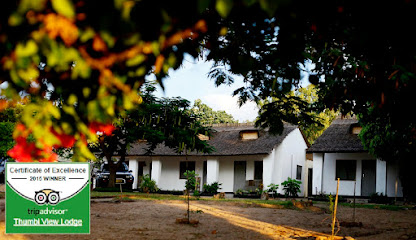
Mgoza Lodge
Discover tranquility at Mgoza Lodge in Cape Maclear - a serene retreat with stunning lake views and exceptional hospitality.
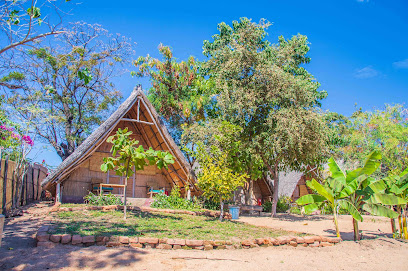
Mufasa Eco Lodge
Discover tranquility at Mufasa Eco Lodge: your serene lakeside escape in Monkey Bay with eco-friendly accommodations and breathtaking views.
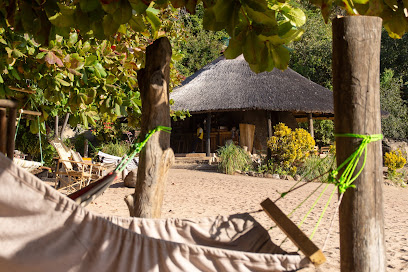
Black Pepper Cafe & takeaway
Discover delightful culinary experiences at Black Pepper Cafe & Takeaway in Chembe, where local flavors meet innovative dining.
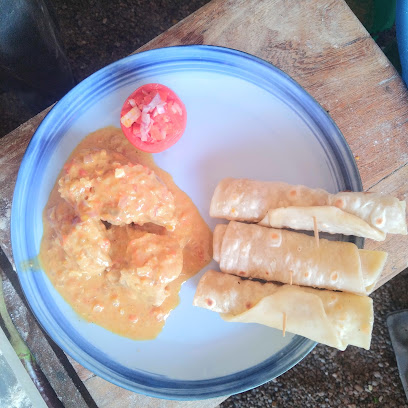
Chembe Eagles Nest Resort
Discover peace and adventure at Chembe Eagles Nest Resort in Cape Maclear – where comfort meets stunning lake views.

Warm Heart Adventure Lodge
Experience serenity and adventure at Warm Heart Adventure Lodge in Cape Maclear, your gateway to exploring Lake Malawi's natural wonders.
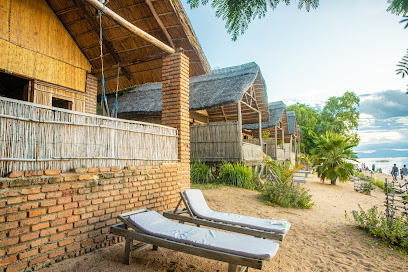
ZATHU Cape Community Kitchen & Bar
Discover mouthwatering local cuisine at ZATHU Cape Community Kitchen & Bar in scenic Cape Maclear - a true taste of Malawi.
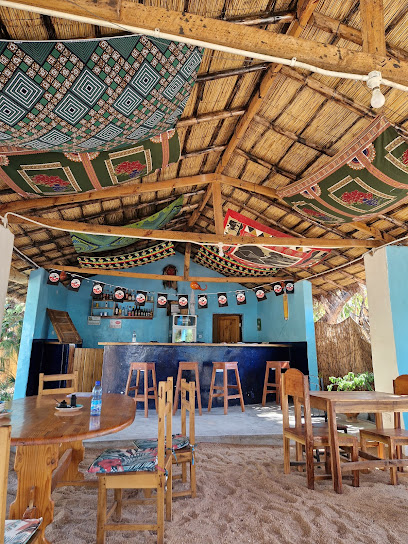
WB Restaurant
Experience authentic Malawian flavors at WB Restaurant in Cape Maclear—where every meal is a journey through local cuisine.
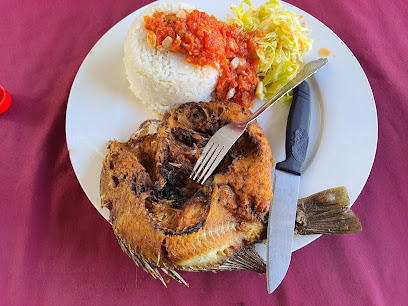
Malambe Camp
Experience tranquility at Malambe Camp: your lakeside escape in Cape Maclear with stunning views and local culture.
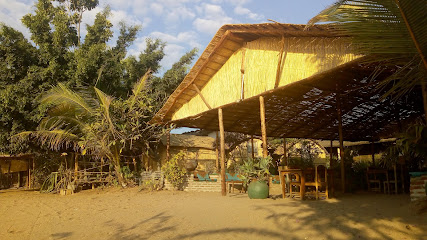
The Boma and Hiccups Pub
Discover the vibrant atmosphere and delightful flavors at The Boma and Hiccups Pub in Chembe – where every meal is an experience.
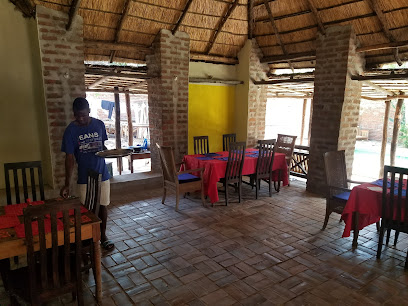
Gecko Lounge
Discover serenity at Gecko Lounge in Cape Maclear—your gateway to relaxation and adventure on Lake Malawi.

Oceana Cuisine
Experience exquisite local cuisine with stunning lakeside views at Oceana Cuisine - your perfect dining destination on Lake Malawi.
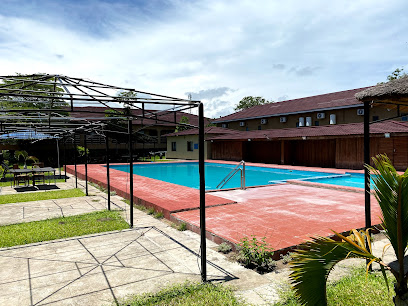
Mphipie Lodge
Discover Mphipie Lodge in Cape Maclear: A perfect blend of breathtaking views and exquisite Malawian cuisine.
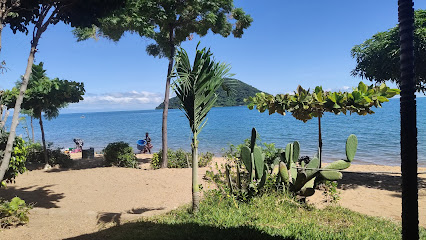
Banapaya
Discover Banapaya: A unique dining experience by Lake Malawi offering authentic Malawian dishes amidst stunning lakeside views.
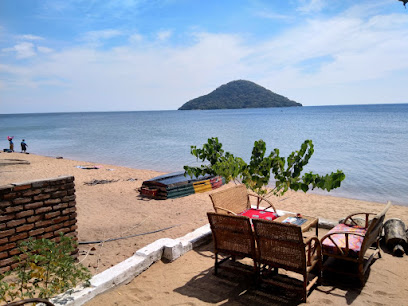
Markets, malls and hidden boutiques
The Funky Cichlid
Discover the vibrant atmosphere of The Funky Cichlid, a perfect blend of adventure and relaxation in the heart of Cape Maclear.

Billy's Tailor Shop
Experience bespoke tailoring at Billy's Tailor Shop in Cape Maclear, where local craftsmanship meets personalized service for unforgettable garments.
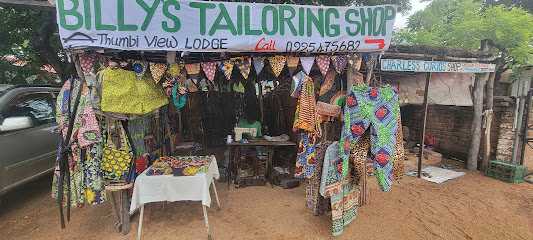
Penwell Pottery Little Shop
Explore the charm of Penwell Pottery Little Shop, where unique handmade pottery meets local craftsmanship in S122.

Freshwave stationary
Discover Freshwave Stationary in M10, a charming store offering a delightful array of stationery and creative supplies for all ages.

Chwondo Home Choice Superette
Discover the vibrant Chwondo Home Choice Superette in Monkey Bay, your go-to spot for fresh produce and local delicacies in Malawi.
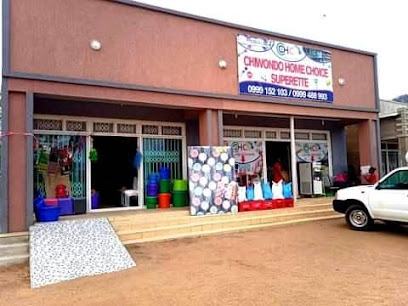
Bakery
Discover the authentic flavors of Chembe at its beloved bakery, where every bite tells a story of local tradition and culinary delight.

Charles's Curios Shop
Explore Charles's Curios Shop in Cape Maclear for unique handcrafted gifts that embody the spirit of Malawi's vibrant culture.
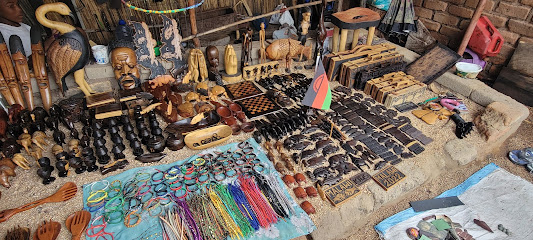
Cape Maclear Stop and Shop Supermarket
Explore Cape Maclear Stop and Shop Supermarket for local goods, fresh produce, and unique crafts in the heart of Malawi's stunning lakeside paradise.

Thank You Lord Shop
Experience the essence of Nkope Mission at Thank You Lord Shop, your local grocery store for fresh produce and authentic local products.
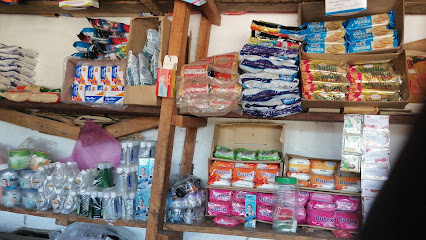
MAGANGA SHOPPING CENTER
Experience the vibrant culture and shopping variety at Maganga Shopping Center in Malawi, a hub for local crafts and delicious cuisine.

One Malawi Art and Craft
Explore the rich artistry of Malawi at One Malawi Art and Craft, your destination for unique handmade treasures and cultural experiences.
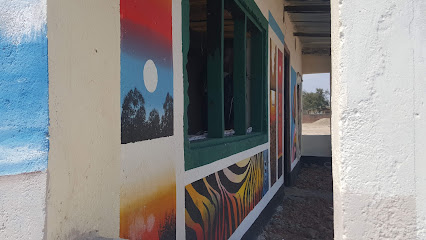
Shalom Arcade
Explore Shalom Arcade in Monkey Bay: A vibrant shopping mall filled with local crafts, delicious dining, and cultural experiences.
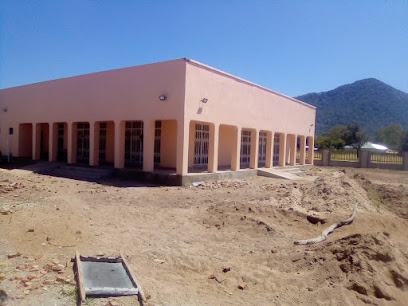
Malamia vlg
Explore Malamia Village Store in Makanjila for authentic local crafts, fresh produce, and a taste of community spirit.

Lionel Riaz's Borge
Discover cutting-edge computer software and expert insights at Lionel Riaz's Borge in Monkey Bay, a tech haven for tourists and locals alike.

JUMA PHONE SOLUTIONS AND ACCESSORIES
Discover the latest electronics and stay connected at JUMA Phone Solutions and Accessories in Monkey Bay, your tech haven in Malawi.
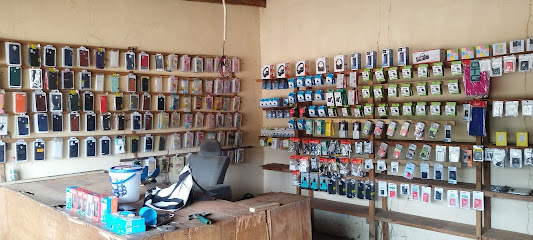
Essential bars & hidden hideouts
Fat Monkeys Lodge
Discover comfort and local charm at Fat Monkeys Lodge in Chembe, Malawi - your ideal retreat for relaxation and exploration.

Mgoza Lodge
Discover the serene beauty of Mgoza Lodge, where comfort meets adventure on the shores of Lake Malawi.

Thumbi View Lodge
Discover the tranquil beauty of Thumbi View Lodge, a serene escape on the shores of Lake Malawi, perfect for relaxation and adventure.
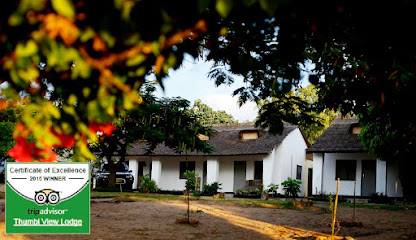
The Funky Cichlid
Discover the vibrant charm of The Funky Cichlid, your beachfront retreat in Cape Maclear, offering adventure and relaxation by Lake Malawi.

Black Pepper Cafe & takeaway
Discover the culinary delights of Chembe at Black Pepper Cafe & Takeaway, where local flavors meet international cuisine in a cozy setting.
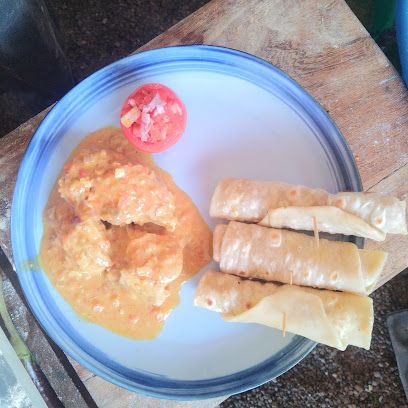
Chembe Eagles Nest Resort
Discover unparalleled beauty and tranquility at Chembe Eagles Nest Resort in Cape Maclear, your perfect escape on the shores of Lake Malawi.

Warm Heart Adventure Lodge
Discover the beauty and tranquility of Warm Heart Adventure Lodge, a serene retreat in Chembe, Cape Maclear, perfect for relaxation and adventure.
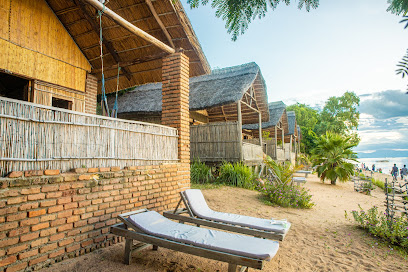
ZATHU Cape Community Kitchen & Bar
Experience authentic Malawian flavors at ZATHU Cape Community Kitchen & Bar, a vibrant restaurant in the heart of Cape Maclear, perfect for food lovers.
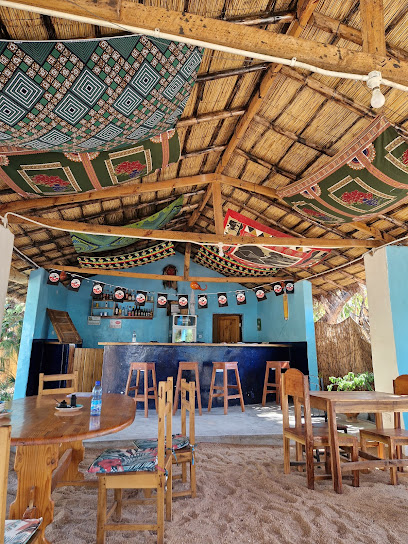
WB Restaurant
Discover the flavors of Malawi at WB Restaurant, where delightful dishes meet stunning lakeside views in Cape Maclear.
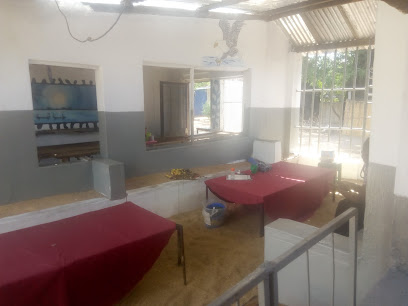
Cape Mac Lodge & Froggies Restaurant
Experience serene accommodations and delightful dining at Cape Mac Lodge & Froggies Restaurant, a tranquil haven in Lake Malawi National Park.

The Boma and Hiccups Pub
Discover the flavors of Malawi at The Boma and Hiccups Pub in Chembe, a perfect blend of local cuisine and vibrant atmosphere.
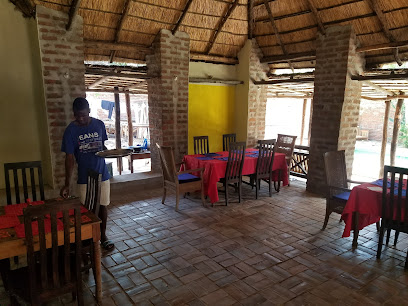
Mphipie Lodge
Experience the culinary delights of Mphipie Lodge in Cape Maclear, where local flavors meet stunning lakeside views for an unforgettable dining experience.
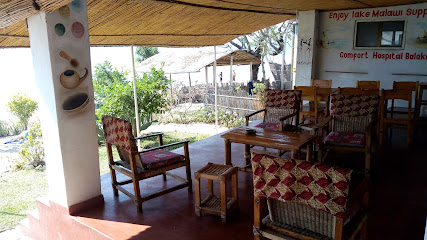
Makata's bar & Restaurant
Discover the delightful culinary offerings and breathtaking lakeside views at Makata's Bar & Restaurant in Chembe.
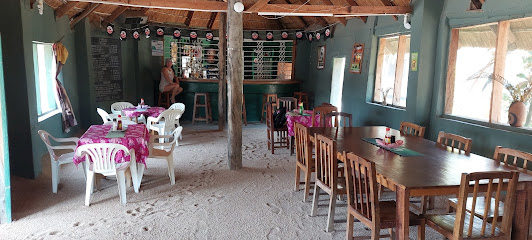
Billy’s Restaurant
Experience delicious family-friendly dining at Billy’s Restaurant in Cape Maclear, where local flavors meet warm hospitality.
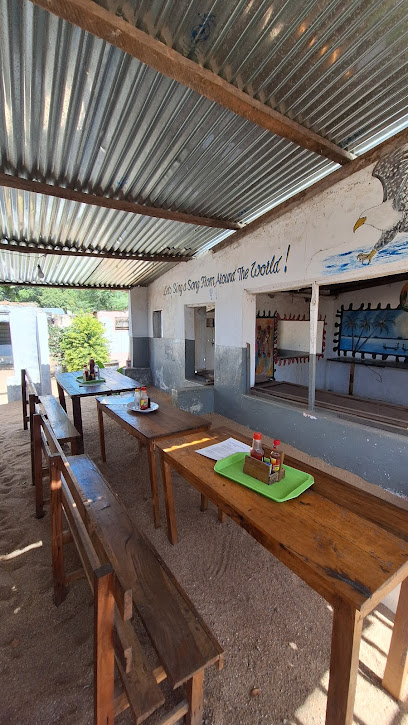
Local Phrases about Cape Maclear
-
- HelloMoni
[moh-nee] - GoodbyeTionana
[tee-oh-nah-nah] - YesEya
[eh-yah] - NoAyine
[ah-yee-neh] - Please/You're welcomeZikomo
[zee-koh-moh] - Thank youZikomo kwambiri
[zee-koh-moh kwahm-bee-ree] - Excuse me/SorryPepani
[peh-pah-nee] - How are you?Muli bwanji?
[moo-lee bwan-jee] - Fine. And you?Ndili bwino. Koma inu?
[n-dee-lee bw-ee-no. koh-mah ee-noo] - Do you speak English?Kodi mukuyankhula Chingerezi?
[koh-dee moo-koo-yahn-khoo-lah ching-eh-reh-zee] - I don't understandSindikudziwa
[seen-dee-koo-dzee-wah]
- HelloMoni
-
- I'd like to see the menu, pleaseNdikufuna kuona menu, chonde
[n-dee-koo-foo-nah kwoh-nah men-oo, choh-n-deh] - I don't eat meatSindibwerera nyama
[seen-dee-bweh-reh-rah nyah-mah] - Cheers!Timbukani!
[tim-boo-kah-nee] - I would like to pay, pleaseNdikufuna kulipira, chonde
[n-dee-koo-foo-nah koo-lee-pee-rah, choh-n-deh]
- I'd like to see the menu, pleaseNdikufuna kuona menu, chonde
-
- Help!Chithandizo!
[chee-than-dee-zoh] - Go away!Pita!
[pee-tah] - Call the Police!Pemphani makampani!
[pehm-pah-nee mah-kahm-pah-nee] - Call a doctor!Pemphani dokotala!
[pehm-pah-nee doh-koh-tah-lah] - I'm lostNdzanena
[ndzah-nay-nah] - I'm illNdimakudwala
[n-dee-mah-koo-dwah-lah]
- Help!Chithandizo!
-
- I'd like to buy...Ndikufuna kugula...
[n-dee-koo-foo-nah koo-goo-lah] - I'm just lookingNdikuona basi
[n-dee-koo-oh-nah bah-see] - How much is it?Ndalama zake ndi zingati?
[nah-lah-mah zah-kay n-dee zin-gah-tee] - That's too expensiveIzi ndi zambiri
[ee-zee n-dee zahm-bee-ree] - Can you lower the price?Mukhoza kuchotsa malipiro?
[moo-koh-zah koo-choh-tsah mah-lee-pee-roh]
- I'd like to buy...Ndikufuna kugula...
-
- What time is it?Sinthani nthawi?
[seen-thah-nee nthah-wee] - It's one o'clockNdi nthawi yotsiku
[n-dee nthah-wee yoh-tsee-koo] - Half past (10)Mawa m'modzi
[mah-wah m-moh-zee] - MorningUsiku
[oo-see-koo] - AfternoonNthawi ya chiyamasi
[nthah-wee yah chee-yah-mah-see] - EveningNthawi yabwino
[nthah-wee yah-bwee-no] - YesterdayTsiku lomwe lero
[tsee-koo lohm-weh leh-roh] - TodayLero
[leh-roh] - TomorrowMawa
[mah-wah] - 1M'modzi
[m-moh-zee] - 2Mawa
[mah-wah] - 3M'chitatu
[m-chee-tah-too] - 4M'china
[m-chee-nah] - 5M'tanu
[m-tah-noo] - 6M'zana
[m-zah-nah] - 7M'zana wamkulu
[m-zah-nah wahm-koo-loo] - 8M'zana wawo
[m-zah-nah wah-woh] - 9M'zana wachisanu
[m-zah-nah wah-chee-sah-noo] - 10M'zana wachitatu
[m-zah-nah wah-chee-tah-too]
- What time is it?Sinthani nthawi?
-
- Where's a/the...?Kuli...?
[koo-lee] - What's the address?Adilesi ndi chani?
[ah-dee-leh-see n-dee chah-nee] - Can you show me (on the map)?Mukhoza kundichititsa (mu mapu)?
[moo-koh-zah koon-dee-chee-tee-tsah (moo mah-poo)] - When's the next (bus)?Ndikati nthawi yolakwika?
[n-dee-kah-tee nthah-wee yoh-lah-kwee-kah] - A ticket (to ....)Maufulu (kutali kwambiri)
[mah-oo-foo-loo (koo-tah-lee kwahm-bee-ree)]
- Where's a/the...?Kuli...?
History of Cape Maclear
-
Cape Maclear, known to locals as Chembe, has been inhabited for centuries by the Chewa people, who are part of the Bantu-speaking ethnic group. The area was originally discovered by Westerners in 1859 when the famous Scottish missionary and explorer, Dr. David Livingstone, arrived on the shores of Lake Malawi during his Zambezi expedition. He named the cape after his friend and mentor, Thomas Maclear, an astronomer at the Cape of Good Hope.
-
During the late 19th century, Cape Maclear became a focal point for missionary activities. The Livingstonia Mission was established in 1875 by the Free Church of Scotland, intending to spread Christianity and provide education and medical care to local communities. This mission was initially set up at Cape Maclear before being relocated to its current site in Livingstonia in 1894 due to health concerns such as malaria.
-
The African Lakes Company, established in the 1870s, played a significant role in the commercial development of the Lake Malawi region, including Cape Maclear. The company aimed to promote legitimate trade and combat the slave trade. Cape Maclear served as a strategic point for the company’s operations, facilitating trade routes and contributing to economic activity in the area.
-
During World War I, Cape Maclear and the surrounding Lake Malawi saw military activity as part of the East African Campaign. The British and German colonial forces engaged in naval skirmishes on the lake. The most notable event was the Battle of Sphinxhaven in 1915, where the British gunboat SS Gwendolen shelled the German vessel Hermann von Wissmann, marking a significant moment in the regional conflict.
-
In 1980, Cape Maclear gained international recognition with the establishment of Lake Malawi National Park, the first freshwater national park in the world. The park was declared a UNESCO World Heritage Site in 1984 due to its unique aquatic ecosystem and biodiversity. The national park encompasses several islands and the surrounding waters, protecting numerous species of fish, many of which are endemic to Lake Malawi.
-
Today, Cape Maclear is a vibrant village that retains its cultural heritage while also embracing tourism. Traditional fishing techniques and village life continue alongside tourism activities. Visitors can experience local culture through community-driven initiatives, such as guided village tours, traditional dance performances, and craft markets. Cape Maclear remains a testament to the harmonious blend of historical significance and contemporary cultural vibrancy.
Cape Maclear Essentials
-
Cape Maclear is located on the southern shore of Lake Malawi in Malawi. The nearest major airport is Chileka International Airport in Blantyre, approximately 220 kilometers away. From Blantyre, you can take a bus or hire a private taxi to Cape Maclear. The journey typically takes around 4 to 5 hours by road. Alternatively, you can fly into Lilongwe International Airport and take a bus or taxi from there, though the distance is slightly longer.
-
Cape Maclear is a small village, and many of its attractions are within walking distance. Local taxis and bicycle taxis (boda-bodas) are available for short trips. Car rentals are available in Blantyre and Lilongwe, offering the flexibility to explore the surrounding areas at your own pace. Public minibuses (matolas) operate within the region, but they can be crowded and less reliable.
-
The official currency in Malawi is the Malawian Kwacha (MWK). Credit cards are accepted in some hotels, lodges, and restaurants, but it is advisable to carry cash, especially in smaller establishments and for daily expenses. ATMs are available in larger towns like Mangochi, but it's wise to withdraw sufficient cash before arriving in Cape Maclear.
-
Cape Maclear is generally a safe destination for tourists, but standard precautions should be taken. Avoid walking alone at night and keep an eye on your belongings in public areas. There are no specific high-crime areas targeting tourists, but petty theft can occur. Always lock your doors and secure your valuables.
-
In case of an emergency, dial 997 for police assistance and 998 for medical emergencies. The nearest medical facilities are located in Mangochi, about 70 kilometers away. It is recommended to have travel insurance that covers medical emergencies and evacuation. For minor health issues, there are small clinics and pharmacies in Cape Maclear where you can purchase over-the-counter medications.
-
Fashion: Do dress modestly, especially when visiting local villages. Avoid wearing revealing clothing. Religion: Do respect local customs and traditions. Always ask for permission before taking photos of people or religious sites. Public Transport: Do be respectful and patient when using public transport. Don't expect punctuality, as schedules can be flexible. Greetings: Do greet people with a friendly 'Moni' (hello). A handshake is customary, often followed by a light clap. Eating & Drinking: Do try local dishes like chambo (fish) and nsima (maize porridge). Don't refuse hospitality, as it is considered impolite.
-
To experience Cape Maclear like a local, visit the local markets and interact with the friendly residents. Engage in traditional activities like fishing or join a village tour to learn about the local Chewa culture. Don't miss the opportunity to take a boat trip to the nearby islands and enjoy snorkeling or diving in the crystal-clear waters of Lake Malawi. For a more immersive experience, participate in a local cooking class to learn how to prepare traditional Malawian dishes.
Trending Landmarks in Cape Maclear
-
Lake Malawi National Park
-
Blue Zebra Island Lodge
-
Fat Monkeys Lodge
-
Thumbi View Lodge
-
Mgoza Lodge
-
Mufasa Eco Lodge
-
Safari Beach Lodge
-
Chembe Eagles Nest Resort
-
Tranquilo Resorts Limited - Cape Maclear
-
Warm Heart Adventure Lodge
-
ZATHU Cape Community Kitchen & Bar
-
Silver Sands Holiday Resort
-
Kayak Africa
-
Mumbo Island
-
Kumbali Lake Retreat
Nearby Cities to Cape Maclear
-
Things To Do in Mangochi
-
Things To Do in Lilongwe
-
Things To Do in Zomba
-
Things To Do in Blantyre
-
Things To Do in Chipata
-
Things To Do in Nkhata Bay
-
Things To Do in Mzuzu
-
Things To Do in Karonga
-
Things To Do in Nyanga
-
Things To Do in Kasama
-
Things To Do in Harare
-
Things To Do in Mbeya
-
Things To Do in Mutare
-
Things To Do in Chinhoyi
-
Things To Do in Ndola







